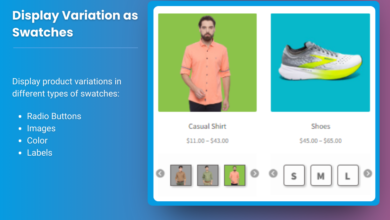Ways To Avoid Temptation And Save Money

As a new gadget or a new pair of shoes catches your sight, your budget suddenly goes out of the window. Resisting temptations is hard throughout the year, but it is even harder during the festive season. You make impulsive purchases and splurge on nights out. You will have lots of excuses to spend money but a few reasons to stash away money. This is where debt consolidation loans can help you get your finances back on track by merging your debts into one manageable payment.
Many people think saving is all about cutting costs. Instead of buying branded goods, prefer generic ones. You will automatically save a lot of money. Unfortunately, it is not true. You cannot save money until you start understanding about your spending.
Why is cutting back on spending so hard?
Fighting a temptation takes a lot of energy. Why is that? There is a scientific reason behind it. When you spend money, it releases dopamine hormone in your brain, a feel-good hormone that gives you pleasure. Every time you shop for something, your brain releases this chemical. Your brain, according to researchers, is wired to make you do things that make you please.
Every time you do it, you want to experience a amount of pleasure more than before, and therefore, it should not come as a shock when you spend more and more every time. Shopping may feel good at that time, but sometimes it evokes a feeling of guilt later on, especially when it evokes a sense that you should not have done it because your budget is ruined now.
Surprisingly, some people borrow money when their budget does not allow them to buy anything. This is a big mistake that many people commit, as it may throw you into a deep hole of debt. Though debt consolidation loans can help you get out of debt, they can be hard to get approved. You will need a good credit score to apply for consolidation loans.
Practical ways to avoid temptation
Here are some crucial ways to avoid temptation:
- Know your financial goals and priorities
One of the best ways to resist temptation is to set goals. When you have financial targets to achieve, you will be forced to stash away money in the first place. Now you know you are to live off the rest of the money for the whole month. First, you should focus on only essential things. The rest of the money can be used for discretionary expenses; however, it does not mean that you have to do it. You can either transfer the whole or part of it to your savings account.
Make sure that the goals you set are realistic and achievable within the given timeframe. “You have to save money” is a vague target. Instead, you should think of a specific sum of money you want to save within six months. Now, if you choose to save £5,000 in six months, you will never be able to see it coming to fruition. You should rather try to set aside £700 in six months. Of course, you can make it to £1,000 if your monthly salary is good.
Tackle your small goals with long-term goals as well. Use apps to track your progress.
- Recognise your spending triggers
Temptation is often the result of a lack of planning. When you do not have any financial goals or are not prepared for the unexpected, you are more likely tempted to spend money on frivolous purchases. In addition, you feel tempted to spend money when you are over the moon or when you are stressed. This is where debt consolidation loans can help, as they provide a structured way to manage existing debt and prevent impulsive spending by consolidating multiple debts into a single, manageable payment.
Many people cannot get over breakups, for example, and therefore, to distract themselves, spend money on things they do not need, like booze, a trip with their friends and the like. You should carefully identify such triggers. You do not need to spend money to feel calm about unwanted things. You can read a book or just take a stroll. Window shopping is also a good alternative. You can have full control of your mind. If you do not want to spend money, you will not.
- Be cautious of the trap of online shopping
Online shopping is good because it brings comfort and lets you buy stuff at lower prices. Unfortunately, many shoppers save their card details and keep buying impulsively. Further, when you buy something, the app pitches you to buy more expensive goods to save money on delivery fees and avail yourself of additional discounts.
This technique is used only to get money out of your pocket. Remove shopping apps from your mobile phones. You will not receive notifications, nor will you be tempted to buy anything. If anything urgent is to be bought, you can download the app and place an order. Make sure you do not save your card details.
- Use cash instead of a credit card
The use of plastic is more prevalent than cash because you just have to swipe it, and you can claim the items you bought. Unfortunately, credit cards create a delusion about the money you have to spend throughout the month, often leading to financial stress. That’s where debt consolidation loans come in, providing a way to manage and combine multiple debts into a single, more manageable payment.
Unless the bill is generated, you think you can spend the money that you have already spent and, as a result, fall behind on the payment. It can brutally damage your credit rating and your budget. The convenience that credit cards offer is another reason why you spend more than your budget allows.
You should use cash for all your purchases. You will have a clear idea of how much you have already spent and how much you are left with. Make sure to jot down your expenses to track spending. If you still want to use your credit card, set aside the transaction amount so you do not fall behind on payments.
The bottom line
You will have to get over your temptation if you want to save money. “Temptation is a psychological response to your emotional state, just like you crave more sugary and starchy food when you eat less fulfilling meals. Similarly, when faced with financial stress, you might be tempted to consider options like debt consolidation loans to ease the burden.
Because you are depressed or exhilarated, you will feel spending more and more money. Identify spending triggers and have full control over your mind.



